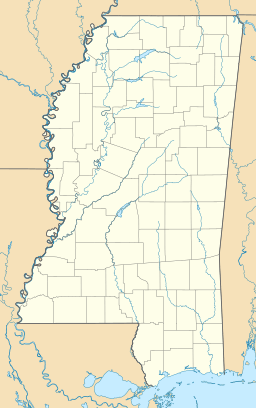Lake Bill Waller facts for kids
Quick facts for kids Lake Bill Waller |
|
|---|---|
| Location | Marion County, Mississippi |
| Coordinates | 31°11′29″N 89°43′12″W / 31.19139°N 89.72000°W |
| Basin countries | United States |
| Surface area | 168 acres (68 ha) |
| Surface elevation | 226 ft (69 m) |
Lake Bill Waller is a special lake in Marion County, Mississippi. It's a large, man-made lake, covering about 168 acres. This lake is named after a former governor of Mississippi, William Lowe "Bill" Waller, Senior. You can find it about 7 miles southeast of Columbia. People mostly visit Lake Bill Waller for fresh-water fishing.
A Look Back: Lake Bill Waller's History
Lake Bill Waller has an interesting past. In 1995, something amazing happened there. An angler caught a huge largemouth bass weighing almost 16 pounds! This was the second largest bass ever caught in the entire state of Mississippi.
Later, in 2003, the lake was closed. This was done so state biologists could make it even better. They had a plan to drain the lake and then restock it. This meant adding new game-fish back into the water. The lake reopened in 2007, ready for more fishing adventures.
Keeping the Lake Healthy: Management
Biologists in Mississippi work hard to keep Lake Bill Waller healthy. They constantly watch over the lake. Their goal is to make sure there are plenty of fish. They want both very large "trophy" fish and good "eating-sized" fish.
A big part of their plan is called catch and release. This means fishermen catch a fish and then carefully let it go back into the lake. This helps keep the fish population balanced.
Tim Barber, the Lake Manager, explains how they do this:
- All bass that are 18 inches or longer must be released. This helps the big fish stay in the lake and grow even bigger.
- Anglers are also encouraged to keep up to 15 bass per person each day. These fish should be 18 inches or smaller.
- Many of these smaller bass weigh between 2.5 and 3 pounds. These are perfect for eating!
- By catching and eating these smaller bass, fishermen help keep the lake in balance. It makes sure there's enough food and space for all the fish.



